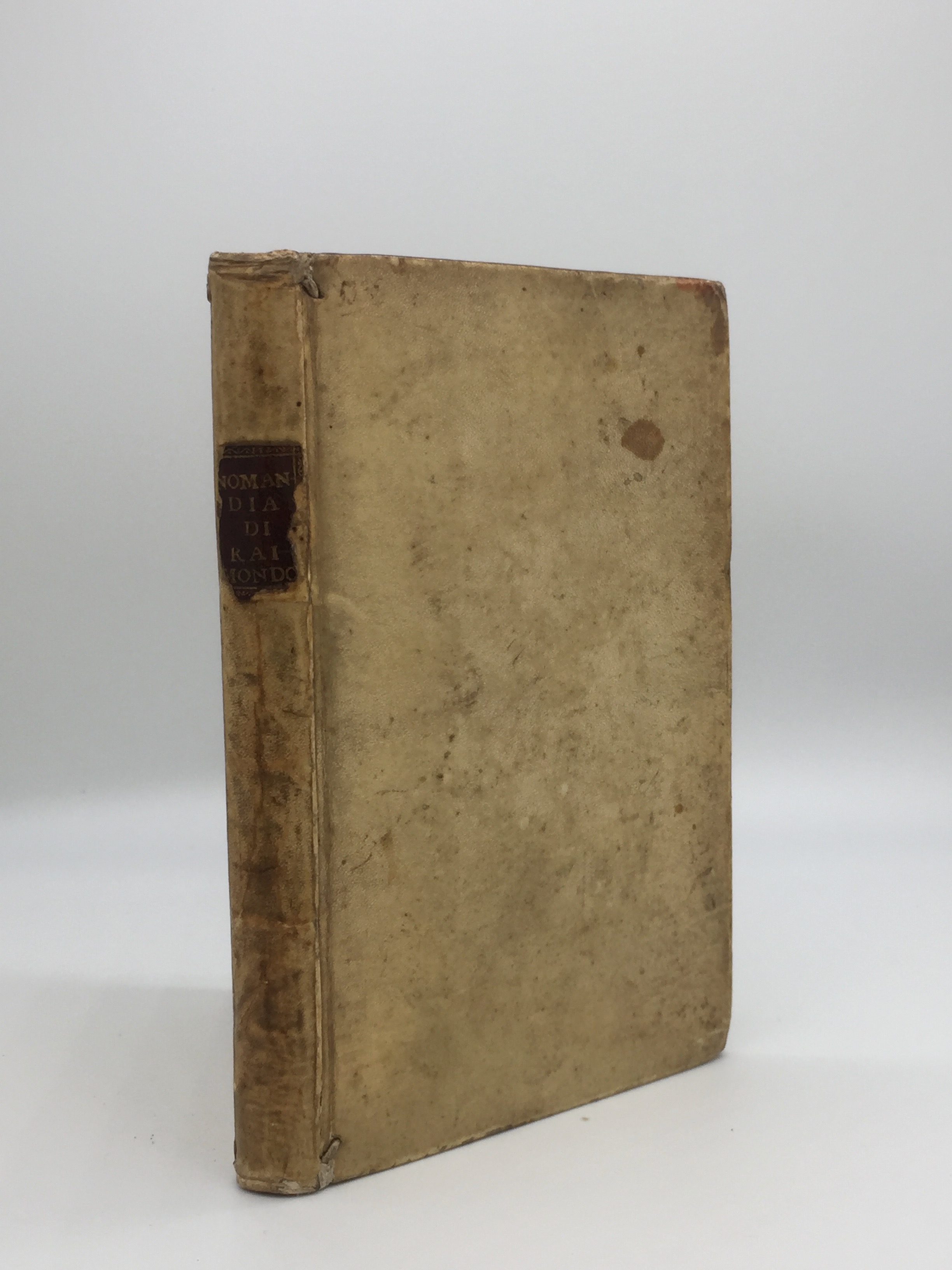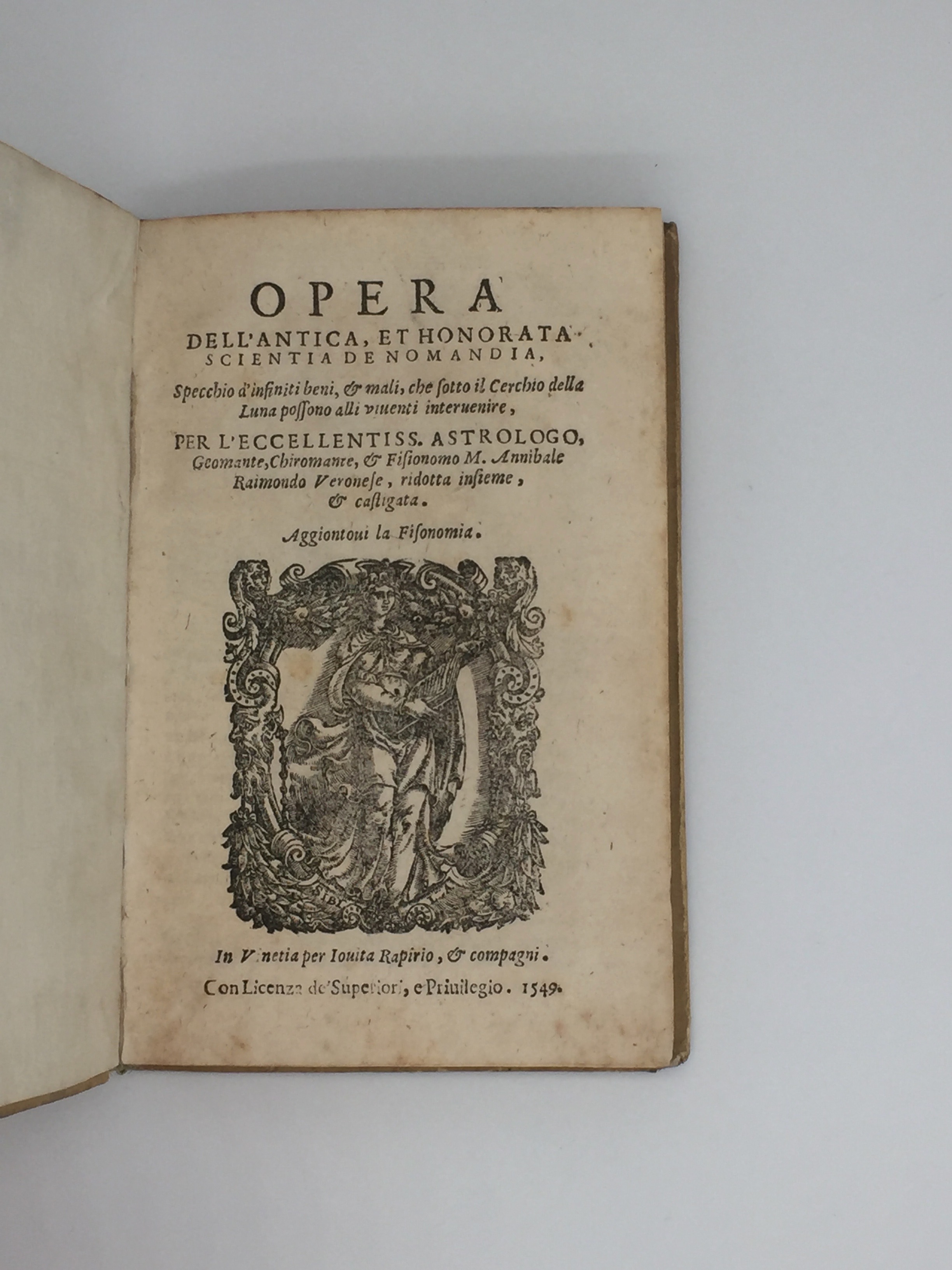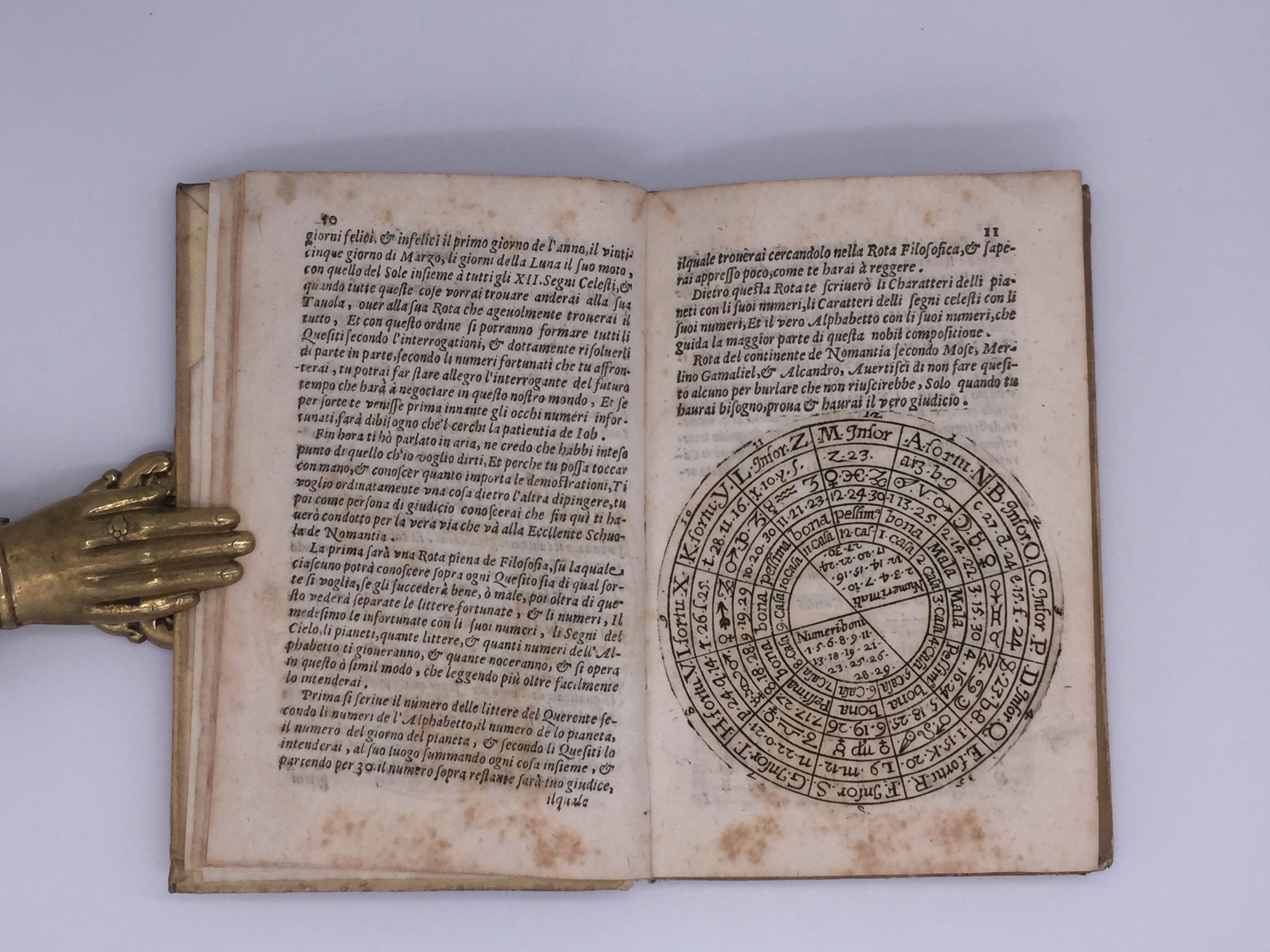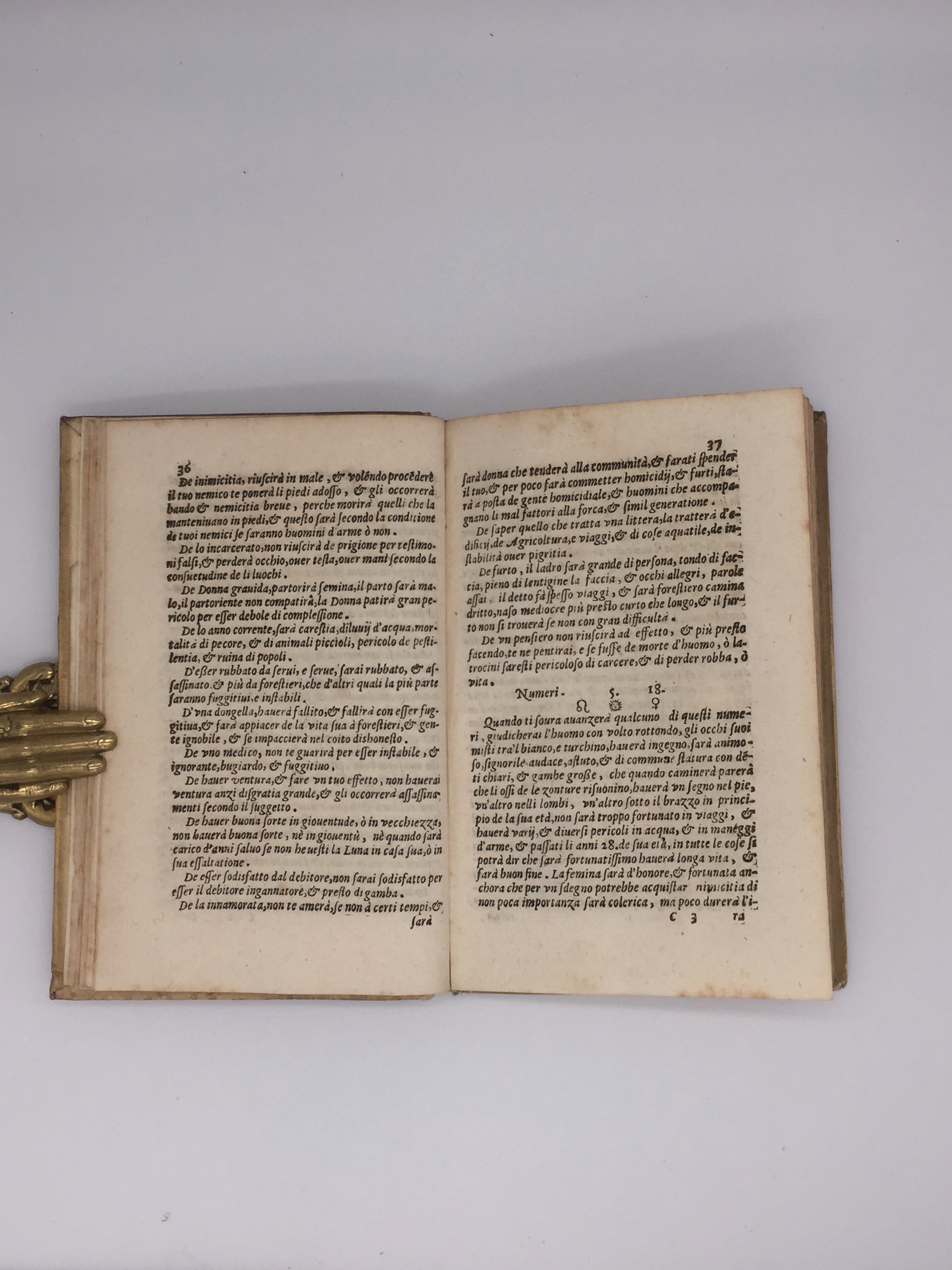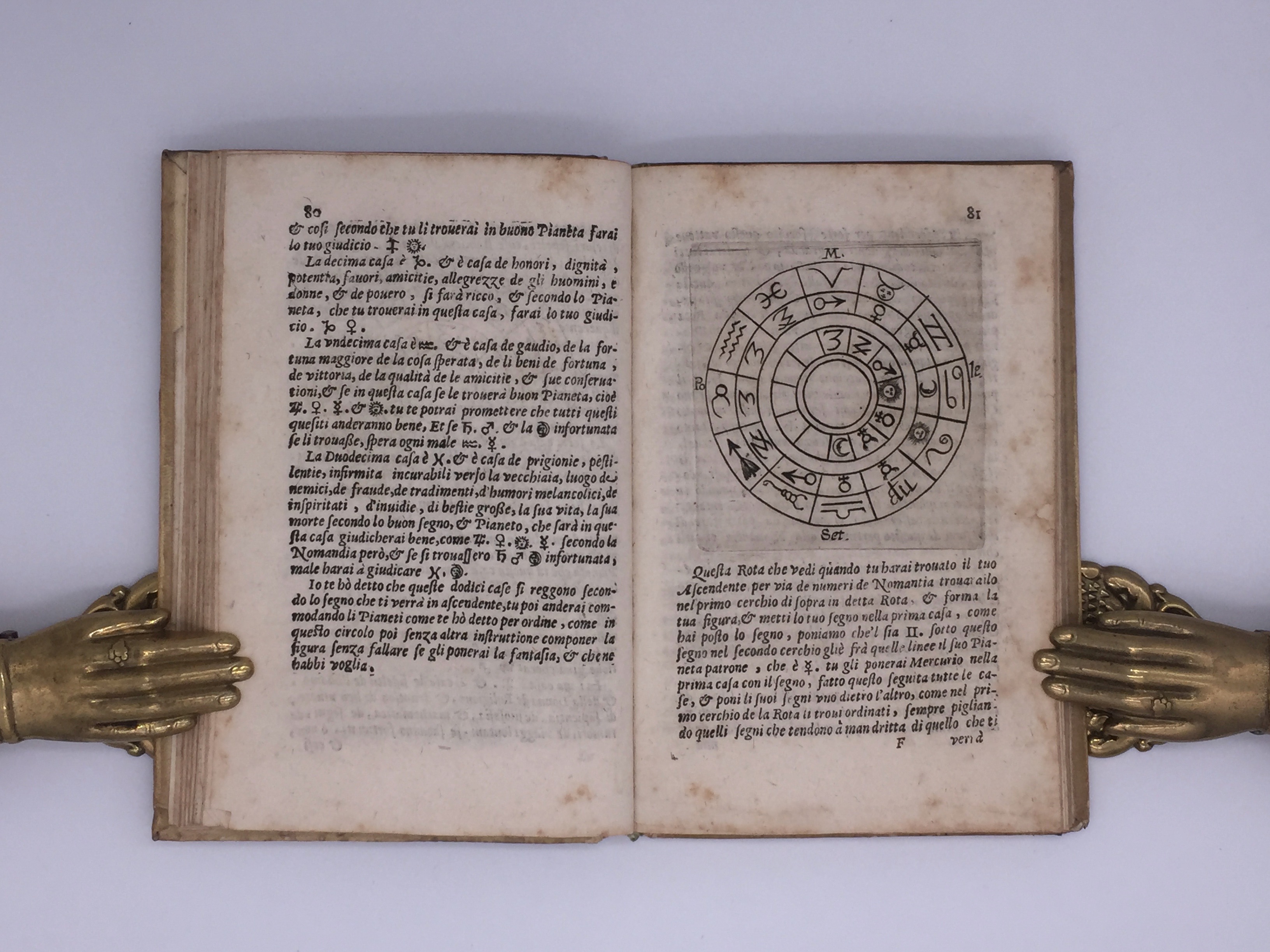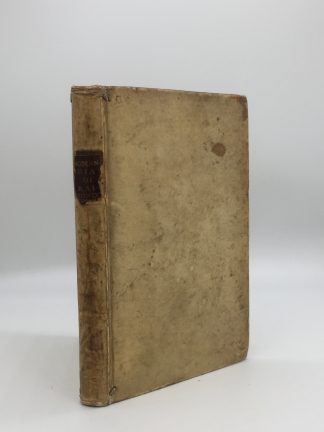RAIMONDO, Annibale
ASTROLOGY AND NUMEROLOGY
Opera dell’antica, et honorata Scientia de Nomandia
Venice, per Iouita Rapirio & compagni, 1549 [colophon: Venice, per Pietro & Gioan Maria fratelli de Nicolini de Sabio, 1550.]£2,250.00
FIRST EDITION. 8vo. pp. 210. Italic letter. Woodcut printer’s device to t-p, 7 half-page engravings of astrological schemas, decorated initials. Some light mainly marginal dampstaining, small tear to outer margin of one fol., early repair to lower margin of another. A good copy in C17 Italian vellum over pasteboards, gilt-lettered morocco label to spine.
Good copy of the FIRST EDITION of this successful work on numerology. Annibale Raimondo (1505-91) was a physician from Verona and the author of several pamphlets on astrology, prognostics and the Gregorian calendrical reform. His ‘Opera’ addressed the only too human wish to know future events, providing a method of interpretation integrating traditional ones like astrology, chiromancy or necromancy. It is the ‘science’ of ‘nomandia’—an astrological system whereby the letters of names and nouns are given numerical values which help foresee events or discover the content or identity of ‘cose occulte’, that is, literally, unknown items or people. Names should be written in the ‘Latin nominative’ and ‘with the true orthography and without barbarism’, to ensure a standardized spelling for equal results, whilst calculations should follow Raimondi’s instructions and take into account the influx of planets according to a ‘philosophical wheel’ with numbers, letters and zodiac signs engraved in the introduction. The initial part of the work features a long list of questions its readers might want to see addressed. These include the traditional desire to know whether future events will bring good or bad fortune, one’s offspring will be male or female or the coming year will see famine, war or peace, but also intriguing requests like ways of telling the content of an unopened letter, the appearance of a thief who acted unseen, whether a prisoner will manage to escape or a physician be unable to heal one’s illness because he is ‘ignorant’, a ‘fugitive’ or a ‘foreigner’. The rest is devoted to combinations of numbers and zodiac signs providing specific answers to the initial question, with excursions into physiognomics. The ‘Opera’ was added to the ‘Index Librorum Prohibitorum’ in 1559 as an ‘item de geomantia et de chiromantia’—methodologies almost completely absent in the work and only present in the subtitle, where Raimondi is described as ‘Astrologo, Geomante, Chiromante & Fisionomo’.
Graesse VI, 18; Houzeau & Lancaster 4846; Cantamessa III, 6502; Riccardi I, 337; Wellcome 5318. Not in NLM.In stock


